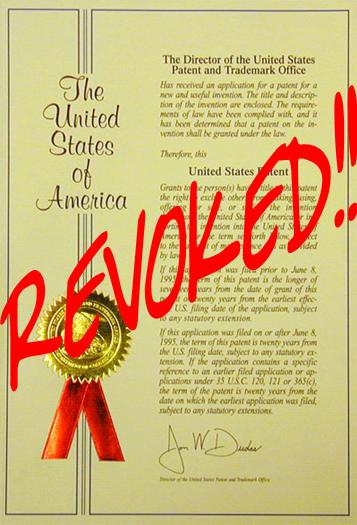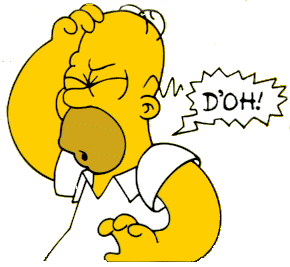3 Common Patent Application Mistakes
Patents give you 20 years of exclusive ownership of your idea.
That means no one else can sell your idea…no one else can manufacture your idea…no one else can import your idea. In short, nobody can profit from your idea without obtaining your permission (which you can charge for, by the way!). And if they do, you can sue the pants off of them (sometimes getting as much as 3 times the damages as well as reimbursement of your attorney fees from them).
But that’s only if the patent application is properly prepared.
Said another way, if you make a mistake on your application – even a tiny one – you can flush those twenty years of protection down the drain.
How small of a mistake can put your idea at risk?
Very small. 99.99% of your patent application can be squeaky clean: no errors, no omissions, nothing wrong. However, just that .01%…sometimes just ONE letter…and you are out of luck.
And that’s exactly what happened that cost one company potentially millions of dollars.
The One Letter Patent Snafu
A few years back, Central Admixture Pharmacy Services (CAFC) sued Advanced Cardiac Solutions for patent infringement relating to a chemical solution used during heart surgery.
A certificate of correction was sought on the patent and was issued by the patent office to replace all instances of the word "osmolarity" with the word "osmolality".
You might be thinking what’s the big deal? So they changed the "R" in osmolaRity with a "L" so that it reads osmolaLity. The problem was changing the two words broadened the claims of the patent.
Enough so that even though the district court found the certificate of correction proper, the CAFC disagreed, resulting in massive litigation.
Seeing as average legal costs for patent litigation can easily run $10,000 or more a month, it pays to make sure a patent is written correctly the first time.
With that in mind, let’s explore a few common patent application mistakes.
3 Huge Patent Application Mistakes
Patent Application Mistake #1: Not filling out the patent application in its entirety
Believe it or not, patent examiners reject applications simply because they do not contain all the necessary ingredients. If you fail to include required elements, such as talking about the background of the invention and prior art references, scope of invention and fail to include claims…your patent application may be dismissed immediately.
Patent Application Mistake #2: Being too specific in the claims
Patents are title to property. And explaining too many aspects of your invention in excruciating detail can actually shrink your intellectual property…and…reduce the profitability in the long run.
For example, imagine you have a new invention that uses a metal spring.
While you are describing your invention in the claims of the patent, you explicitly state it uses a metal spring. Now, what’s stopping another inventor from copying your invention piece for piece, but instead of using a metal spring they use a plastic spring, rubber spring or even an elastic band?
Do you see how this seemingly small specific wording could invite other people to copy your idea and make small changes that would all them to get around your patent?
Patent Application Mistake #3: Being too vague
Now this may sound contradictory to mistake #2, but too many patent applications do not go into detail about how their idea works. Do not assume your idea is understood. Failing to describe the idea in detail could leave "gaps" in the patent making it invalid for not enabling the invention. If your patent is invalidated, anyone can come in and sell similar products.
Make no mistake, applying for a patent is tricky.
Worst of all, you may not know you even made a mistake on your patent until YEARS after submitting the application…when an examiner at the patent office finally gets around to reviewing your patent application. Sometimes the mistake is not even caught until you go to enforce your patent and find out it is worthless.
What good is finding out your brakes don’t work when you are need to stop.
A qualified patent attorney can make sure this never happens to you. If you would like free information on the ins and outs of the patent application process (including how to get a patent and the fees involved) go to our free patent information request page. Include your information and we will rush you an informational packet immediately.